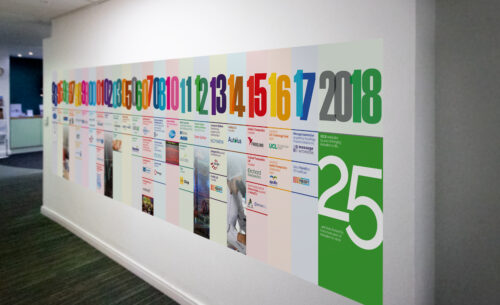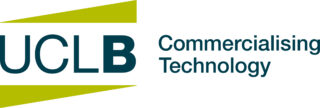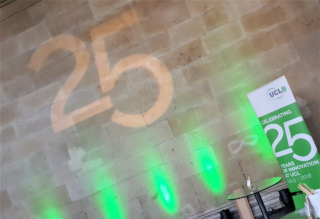Interviews & Insights
UCLB marks 25 years of innovation

As this year marks our 25th anniversary, it provides the perfect time to look back on some of the remarkable achievements leading up to this point.
Our journey initially began when we were established as Freemedic in 1993. Over this time, UCLB has proudly been nurturing the research and ideas of UCL academics into world-leading, world-changing technological innovations that have a real impact on people’s lives.
At UCLB we benchmark everything we do against the impact that we make on society. That’s why it’s rewarding to see so many UCL technologies solving industry problems and utilising research to treat patients. For example, Simulect ®, a monoclonal antibody being used to prevent rejection in organ transplantation, especially in kidney transplants. The Saphena® anti-embolism stocking is also being used throughout the NHS, providing a clinically effective system to help prevent the formation of Deep Vein Thrombosis (DVT). UCLB licensed the know-how and UCL trade mark behind this to Saphena® in 2003.
Endomagnetics, a UCL spinout created in 2007, is now pushing the boundaries of medical science, allowing radiologists to accurately mark the site of breast tumours up to 30 days before surgery to enable the precise removal and treatment of breast cancer. The medical device company was also recently recognised for its efforts towards cancer treatment, receiving The Queen’s Award for Innovation in Enterprise.
2008 saw the launch of UCL Computer Science spinout Chirp. Chirp uses innovative technology to enable peer-to-peer and online sharing of small amounts of information through sound. It has used its technology to find solutions across various industries from computer games to the energy sector. Most recently Chirp has partnered with Microsoft applying its sound based connectivity solution to connect Microsoft’s IoT devices to the Azure Cloud.
Over the years UCLB have provided funding advice to many academics and spinouts, connecting them with suitable opportunities. In 2016 the UCL Technology Fund was launched. The £50m fund is co-managed by UCLB and Albion Capital, and invests in promising technologies arising from UCL. UCLB has also connected many academics to the Apollo Therapeutics fund, a unique collaboration between three global pharmaceutical companies: AstraZeneca, GlaxoSmithKline and Johnson & Johnson.
The past 25 years have seen some remarkable achievements for many UCLB spinouts and with some great success stories already this year, UCLB looks forward to working with many more of the future’s technologies.
Take a look at our 25th anniversary timeline to see just some of the stories from the last 25 years.

